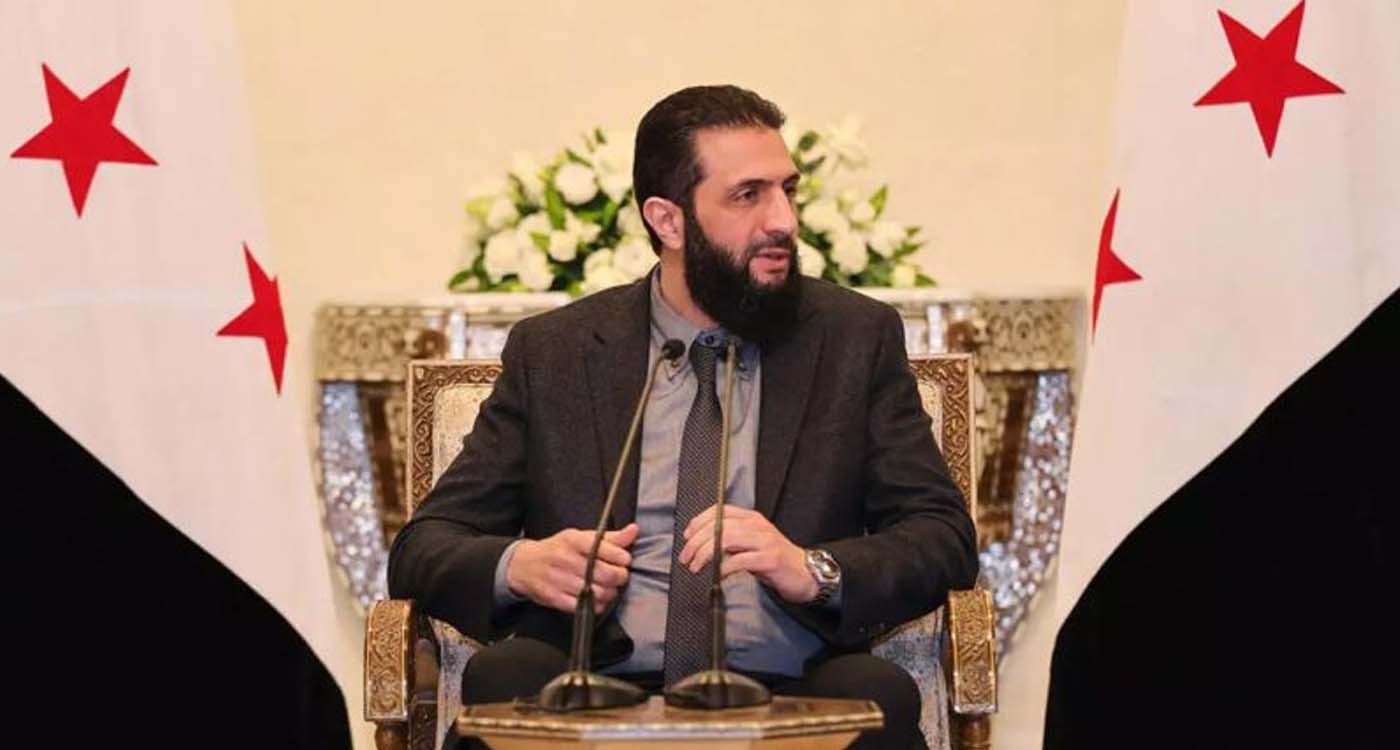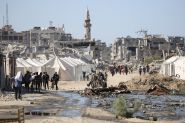- Home
- Middle East
- The U.S. Urges the UN to Lift Sanctions on Syria’s President

©Syrian Transitional Government photo via AFP
The United States submitted a draft resolution to the UN Security Council calling for the lifting of sanctions on Syrian President Ahmad al-Sharaa and several members of his government. The move comes just days before the Syrian leader’s unprecedented visit to Washington; a diplomatic turning point after more than a decade of war in Syria.
According to a draft obtained by The Associated Press, the U.S. is asking the Security Council to remove a set of sanctions imposed on Ahmad al-Sharaa and his Interior Minister Anas Hasan Khattab. The resolution could be put to a vote as early as Thursday. To pass, it must secure at least nine votes and avoid a veto from any of the five permanent members (China, Russia, France, the United Kingdom, and the United States). Yet, the American gamble remains risky: several Western allies fear the too-rapid rehabilitation of a leader with a jihadist past, while NGOs stress that the country remains devastated and deeply fractured after thirteen years of civil war that killed nearly half a million people.
This U.S. initiative comes just days ahead of a scheduled meeting between Donald Trump and Ahmad al-Sharaa, expected Monday at the White House. It will be the first visit by a Syrian president to Washington in decades. According to the White House, talks will focus on sanctions relief, reconstruction, and Syria’s integration into the international coalition against the Islamic State.
A Former Rebel Commander Seeking International Legitimacy
Ahmad al-Sharaa came to power in December 2024 after overthrowing Bashar al-Assad. A former leader of the jihadist group Hayat Tahrir al-Sham (HTS), he has since sought to rebuild his international image. Although his past at the head of an organization once affiliated with al-Qaeda has long raised concerns in Western capitals, Washington now appears to be betting on his ability to stabilize Syria.
Last May, Trump met al-Sharaa in Saudi Arabia and announced his intention to lift a large part of U.S. sanctions. “He’s a strong man, a true leader,” the American president said at the time, arguing that the Syrian leader had “a real chance to hold his country together.”
In addition, Reuters reported on Thursday that Washington is preparing to establish a military presence in Damascus to supervise a future security agreement between Syria and Israel. The base, whose location remains classified, would monitor a demilitarized zone currently being negotiated as part of a non-aggression pact brokered by the Trump administration.
This unprecedented project underscores the strategic realignment of Syria’s new leadership toward the United States after decades of alliance with Iran.
The End of Diplomatic Isolation?
Before heading to Washington, Ahmad al-Sharaa is attending COP30 in Brazil, where he was welcomed by President Luiz Inácio Lula da Silva, a sign of the new Syrian government’s willingness to re-engage with the international community.
If approved by the UN and the U.S. Congress, lifting the sanctions would constitute a decisive step toward Syria’s reintegration into the global arena. But the move is likely to spark debate, especially in Congress, where the harshest sanctions imposed under the Caesar Act in 2019 can only be lifted by a majority vote.
Adopted in 2019, the Caesar Act, named after a former Syrian military photographer who exposed atrocities committed by the Assad regime, forms the main legal framework behind U.S. sanctions on Syria.
It penalizes any individual or foreign entity cooperating with the Syrian government in reconstruction, energy, or financial transactions. Although Donald Trump already suspended several measures by executive order, a full lifting requires Congressional approval. Under the law, the Secretary of State and the Secretary of the Treasury must regularly certify whether the conditions justifying the sanctions remain in place. If oversight weakens or human rights violations persist, sanctions can be immediately reinstated.
For Donald Trump, this diplomatic reopening could represent a major political achievement: ending Syria’s isolation and bringing a former adversary, under conditions, back into the camp of counterterrorism.
Read more




Comments